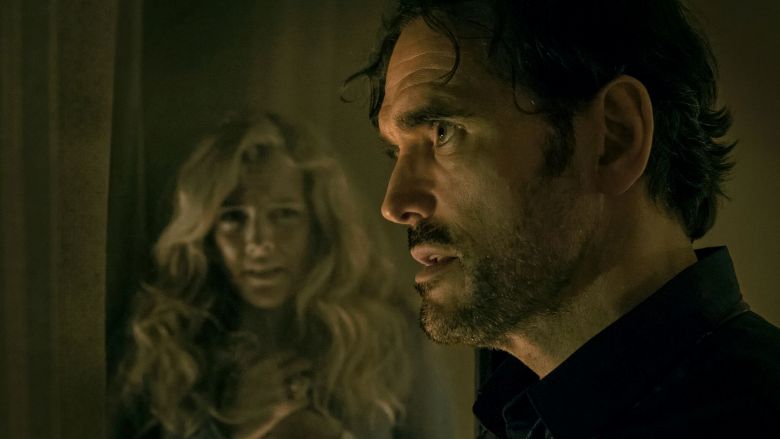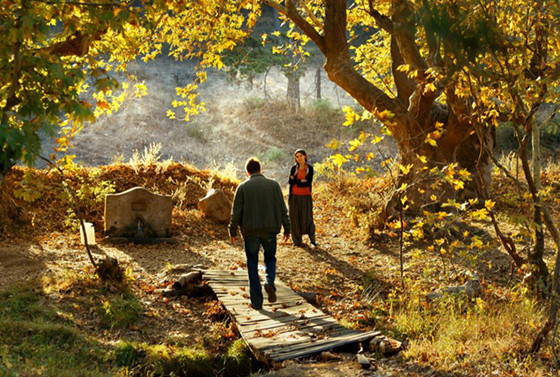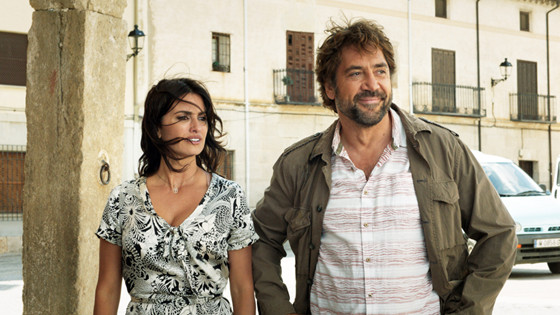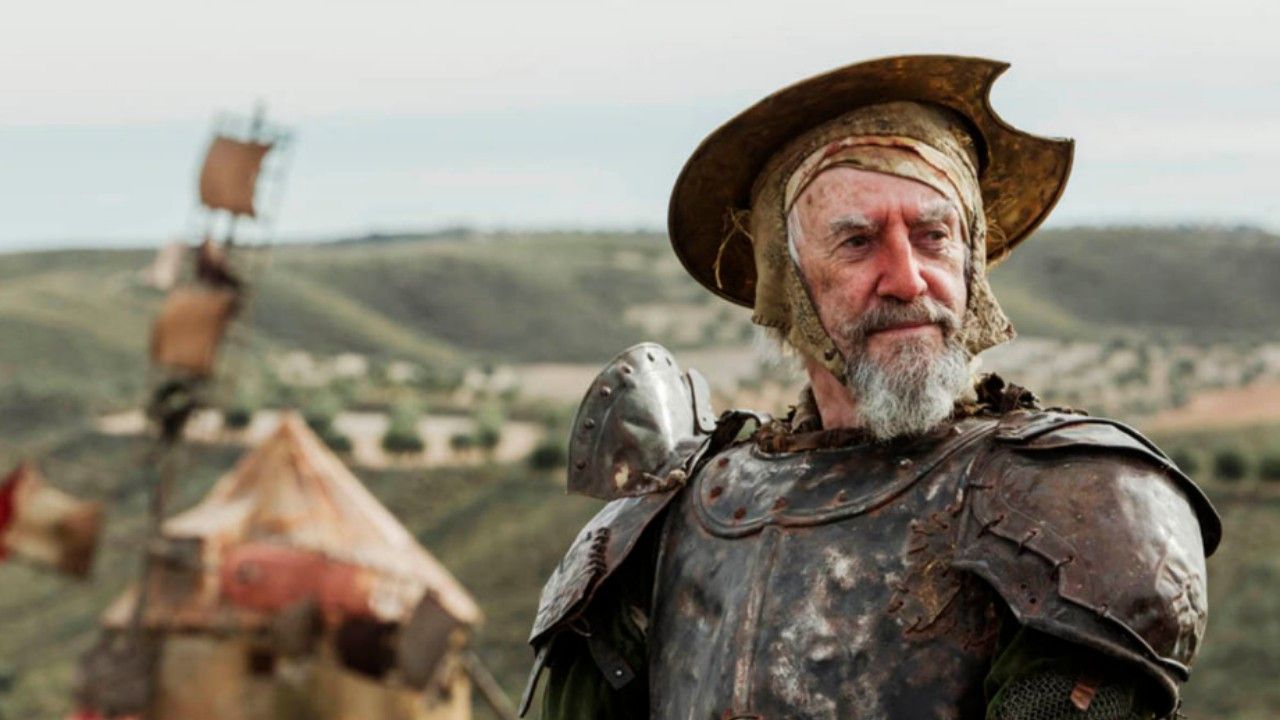5. Under the Silver Lake

Horror is both the easiest genre and the most difficult one to approach in film. It’s easy to craft a gimmick-driven narrative that can earn you a bunch of unearned cheap scares, but it’s certainly not that easy to craft a compelling experience with more substance than what its logline promises. That’s precisely what David Robert Mitchell did in 2014 with It Follows.
His newest film, Under the Silver Lake, has certainly been a film on many a cinephile’s radar, even getting picked up by the next big thing in independent cinema, A24, for distribution before it even found its way onto festival circuits.
The film’s peculiar trailer promises an interesting amalgamation of contrasting genres of neo-noir and comedy. Seeing the contribution Mitchell did to the oversaturated genre of horror with It Follows, it would certainly be interesting to see what he’s able to bestow upon the undeniably procedural and formula-driven one of neo-noir.
Between the Safdie Brothers’ Good Time and this film, as well as A24’s increasingly impeccable track record, independent filmmaking, a brilliant platform for young, untapped and unrestrained creativity fuelled by nothing but a love for cinema, may finally get the due recognition and respect it deserves among both mainstream and arthouse audiences.
4. The House That Jack Built

When it comes to the cinema of the avant-garde, Lars von Trier is perhaps the most notable figure in modern experimental cinema. His films, whether you like it or not, dare to question the very rules that bind cinema, similar to what Jean-Luc Godard did nearly half a century prior in the French New Wave. The central difference between the two filmmakers, however, is the fact that one name is revered by the arthouse crowd, while the other earned himself the title “persona non grata” at the Cannes film festival.
The House That Jack Built sees von Trier’s return to form after half a decade following his epic erotic two-parter Nymphomaniac. The film follows a single individual, the titular Jack, over a span of 12 years as he transforms overtime into a serial killer. This logline alone seems farcical at a glance, which is exactly the kind of film von Trier would be interested in exploring.
Knowing the type of filmmaker von Trier is and his approach to filmmaking, The House That Jack Built would almost certainly be a film not without its fair share of controversy. It’s sure to rile and offend, with as much beautifully shot sequences as there are ugly ones. You may not like the film, but you can almost be certain the film would not be anything other than a genuine product straight out of the recesses of the broken genius that is Lars von Trier.
3. The Wild Pear Tree

It’s no easy feat to write and direct a film over 3 hours in length, let alone make it thoroughly engaging from start to finish even despite its slow pace. Nuri Bilge Ceylan did exactly that, and won himself Palme D’or just 4 years ago with Winter Sleep, a film that greatly boosted his reputation among international audiences and serves as a brilliant introductory point to those that wish to get exposed to his brilliant filmography.
His latest film, The Wild Pear Tree, tells a simple tale of an aspiring writer returning home to settle his father’s debts, putting his ambitions on hold. The film boasts a runtime of an excruciating 3 hours and though the film’s pace might be considerably slower than what mainstream audiences are used to, taking into consideration the two films Ceylan directed immediately preceding The Wild Pear Tree, he certainly has an undeniable knack for making the best out of a gruellingly sluggish pace.
His drawn-out approach to conveying inter-personal conflicts between similar and dissimilar individuals is absolutely riveting to watch unfold, as is his beautifully composed shots and purposeful use of cutaways. Don’t let the daunting runtime deter you, because The Wild Pear Tree is certain to be a moving tale able to make strong philosophical and political statements.
2. Everybody Knows

A film by yet another Iranian filmmaker on this list, Asghar Farhadi’s Everybody Knows is perhaps one of the first films announced to the public to be part of the prestigious festival’s line-up, and for good reason.
Farhadi is a filmmaker on a league of his own, not only among his contemporaries in Iranian cinema, but in world cinema as a whole. His films are so incredibly tense, featuring such an impeccable command of conveying suspense through dialogue and plot, while still maintaining its inherent capacity as a family drama with strong philosophical undertones.
Everybody Knows sees Farhadi once again, tell a complex story in a country separate from his own, in a language separate from his own, with perhaps some of the greatest living actors speaking that language. The film chronicles a revelation of secrets following a couple’s return to their hometown.
Despite the trailer unfairly painting the film to be a typical melodramatic soap opera, Farhadi is a filmmaker leagues above that. He may sway towards a more theatrical side in terms of his extravagant Sorkin-esque use of dialogue, but it’s undeniable that the experience derived from this sense of hyperbolism is extremely effective and almost akin to watching a full-blown thriller, as opposed to a simple family drama.
A film carried on the shoulders of three Academy Award winners, Everybody Knows is almost certain to be an absolute powerhouse of a film. Even if the film’s content and themes do not stick with you, you can be sure you’re going to be thoroughly engaged and entertained in the span of the film’s 130-minute-long runtime.
1. The Man Who Killed Don Quixote

The Man Who Killed Don Quixote is perhaps not only the most anticipated film of Cannes 2018, but among one of the most anticipated films of all time. With such a troubled production process spanning decades and even spawning a documentary on its own, Terry Gilliam’s interpretation of Cervantes’ iconic tale deserves a spot on this list by reputation alone.
As is expected from a filmmaker like Gilliam, a member of the esteemed Monty Python comedy troupe, The Man Who Killed Don Quixote would certainly be a subversive, surreal experience that not only doesn’t take itself too seriously, but also containing strong elements of storytelling as well as thematic undertones.
The film follows the unlikely relationship between an advertising executive and an old man who believes himself to be the legendary Don Quixote on an idiosyncratic journey through the ages, where the boundaries between fantasy and reality are blurred. Only a man like Gilliam can interpret such a classic work of literature as a basis for an absolutely absurd odyssey.
With that all being said, the film may not even get a Cannes screening after all, considering the current legal debacle it got itself into, adding yet another chapter to the seemingly endless story that is the film’s troubled production. Even if the film itself fails to impress, the day The Man Who Killed Don Quixote finally gets its release to the general public will certainly be a day to remember.
Author Bio: Zach Wee is a film student from Singapore. Apart from being an aspiring filmmakerr, Zach has a strong passion for cinema and manages the website of his school’s film club, where he edits and also submits weekly film reviews.